The 10 Most Memorable Tech Exec Statements Of 2008
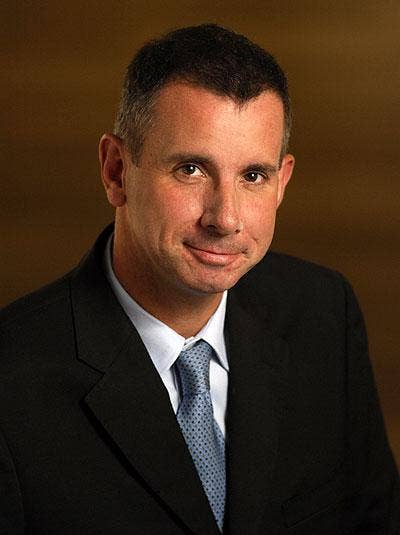
"When you make big changes, you are going to upset somebody."
-- Adrian Jones, Hewlett-Packard's vice president and general manager, Solution Partners Organization Americas
When word got around that HP was planning to co-fund 110 new HP-only CDW salespeople selling HP products into accounts with 499 or fewer employees, Jones received an earful from many of the company's SMB-focused solution providers.
Other partners were concerned when HP said it would be replacing its Gold and Platinum designations for its best channel partners with Preferred and Elite. But despite the changes that HP is making to its PartnerOne program, partners feel that Jones has done a solid job of making it clear that these changes will help improve HP's relationship with the channel over the long haul.
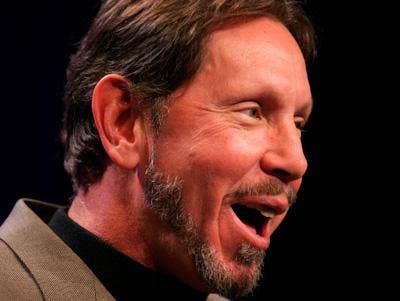
"The interesting thing about cloud computing is that we've redefined cloud computing to include everything that we already do. I can't think of anything that isn't cloud computing with all of these announcements.
"The computer industry is the only industry that is more fashion-driven than women's fashion. Maybe I'm an idiot, but I have no idea what anyone is talking about. What is it? It's complete gibberish. It's insane. When is this idiocy going to stop?"
-- Oracle CEO Larry Ellison, in comments excerpted by the Wall Street Journal
Ellison is known for making blunt statements, but this one -- made during Oracle's annual financial analyst meeting in September -- was exceptionally frank. Ellison's statements were also quite ironic given the leading role Oracle has assigned itself in the cloud computing revolution.
One thing's for sure: Salesforce.com CEO Marc Benioff's ears were definitely burning when Ellison delivered this anti-cloud rant.
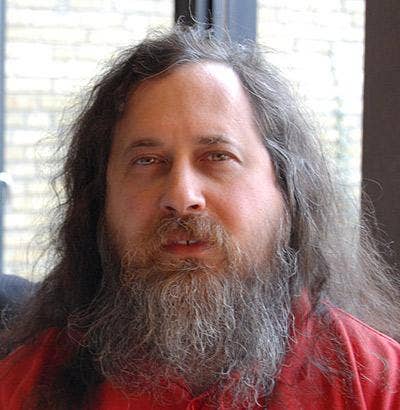
"It's stupidity. It's worse than stupidity. It's a marketing hype campaign."
-- Richard Stallman, founder of the Free Software Foundation and creator of the GNU operating system, quoted by The Guardian
Here's one area in which Stallman and Oracle CEO Larry Ellison would agree, although they'd probably clash on pretty much any other software industry issue. Stallman's belief is that using Web-based apps is a sure way to lose control, and he thinks it's just as bad as using proprietary software.
Hey, here's an idea for a reality television show: Put Stallman, Ellison and Salesforce.com CEO Marc Benioff in a room with walls covered in cloud computing slogans, lock the doors for 20 minutes and see who emerges the most unscathed.
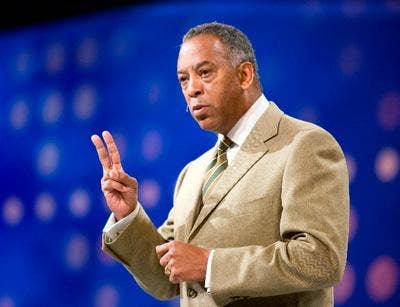
"I've always believed that 10 years was long enough heading any company, but when is an optimal time to announce?"
-- Symantec CEO John Thompson, in a November press conference in which he announced he'll be leaving Symantec next year
In announcing his intentions to leave Symantec, Thompson reassured investors that his decision had nothing to do with the company's slowing growth, dim fiscal outlook or the broader macroeconomic environment. Still, these factors, and the fact that some partners feel that Symantec's channel strategy underwent a clear shift during the year, may have played a part in his thought process.
Although rumors immediately began swirling that Thompson was a prime candidate for President-elect Barack Obama's newly created national CTO position, Thompson has repeatedly said he's not interested in a Cabinet post.
The 10 years rationale really begs further scrutiny: Would Thompson have stepped down if his vision for synergy to develop between security and storage -- the central idea behind Symantec's $10 billion acquisition of Veritas -- had ever materialized in a fiscally tangible way?

"Our partners were telling us we weren't ready [with regard to Microsoft Windows Vista], so we're going to be very careful in terms of listening to what they tell us with Windows 7."
-- Allison Watson, corporate vice president of Microsoft's Worldwide Partner Group
As Microsoft revs up its development engine for Windows 7, the company is clearly committed to avoiding a repeat of the mistakes it made with Windows Vista. This is especially true when it comes to communicating with partners, and making sure, for example, that code is released on time and is easy for system builders to install and uninstall.
According to Watson, Microsoft in the past year has instituted what it calls the Last Mile Process, a program that elicits partner feedback, gauges licensing readiness and spells out how Microsoft gets code into partners' hands.
Given the significant amount of attention Microsoft executives spent talking about Windows 7 at the recent Professional Developer Conference and Windows Hardware Engineering Conference, Microsoft appears to have learned valuable lessons from the Vista experience.

"The most important thing for partners to take out of all of this is that you've got to be moving, too. Things are changing -- the way the money is flowing, the development work that you do, the support services, that's all going to change."
-- Stephen Elop, president of the Microsoft Business Division
Elop's keynote at the Microsoft Worldwide Partner Conference was the first time he took the stage as a Microsoft executive, and his task wasn't an easy one. Elop announced Microsoft's pricing structure for a new line of online services that will inevitably cut into the revenue streams of many partners that have built businesses around software deployment and maintenance services.
But partners, for the most part, respected the fact that Elop delivered the message in a 'tough love' fashion, and didn't try to obfuscate the fact that they would need to change their business models. Elop's prevailing message was -- and is -- that Microsoft's customers are asking for services, and VARs need to evolve their businesses accordingly.
What Elop was really saying, though, is that partners need to dry their tears and get on board, because the Microsoft Software Plus Services train is leaving the station.
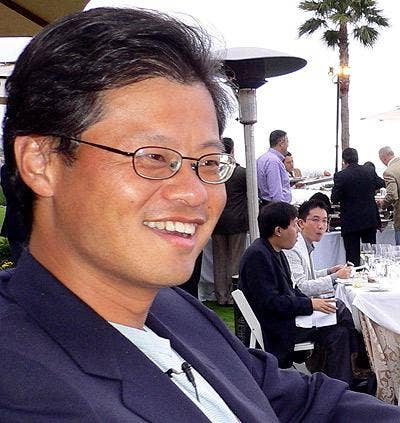
"We have taken the proposal Microsoft delivered to us very seriously. We made a public statement why we have not accepted the proposal. In many ways it has been a galvanizing event for all of Yahoo."
-- Yahoo CEO Jerry Yang, speaking in February at the Interactive Advertising Bureau's annual meeting in Phoenix
This one actually doesn't require a great deal of further comment. Sure, we could poke fun and wonder whether the "galvanizing event" was really worth the tens of billions of dollars Yahoo's refusal of Microsoft's $44.6 billion acquisition bid probably cost the company and its shareholders. But that would be mean.
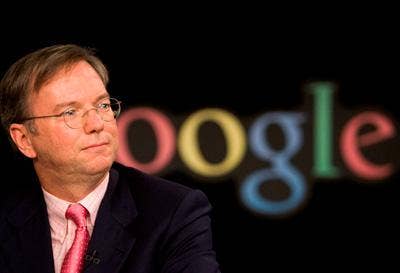
"Oil is finite, but information is infinite."
-- Google CEO Eric Schmidt, in a November speech at the New America Foundation in Washington, D.C.
In the speech, Schmidt discussed how the Internet's reach and openness can help build knowledge among the world's populace and ultimately lead to real solutions to energy issues. To achieve this, however, more focus will need to be placed on building out broadband networks throughout the world to maximize the knowledge-based network effect, Schmidt explained.
"Infrastructure is the foundation upon which wealth is created," he said.
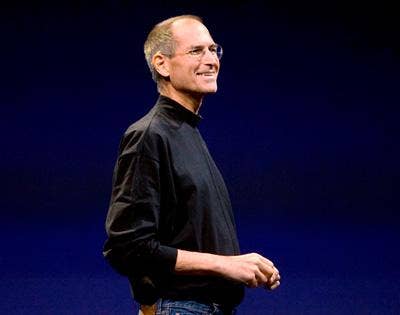
"Reports of my death are greatly exaggerated."
-- Apple CEO Steve Jobs, channeling Mark Twain during a September speech at the company's "Let's Rock" event in San Francisco
Jobs, a pancreatic cancer survivor, had been rumored to be in poor health after an appearance at Apple's Worldwide Developers Conference in June, during which some attendees said he looked as if he'd lost weight. These rumors intensified in August when an obituary for Jobs was accidentally published on Bloomberg's wire service.
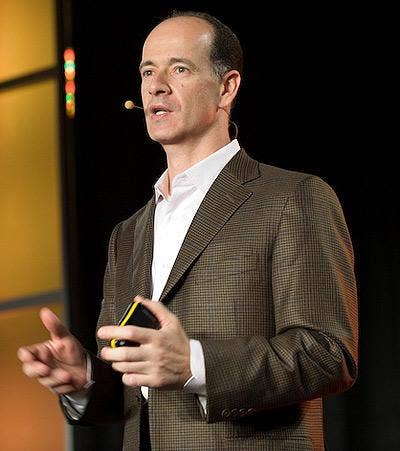
"I'm fully prepared to capitalize on opportunities in the marketplace and at the end of this melee we're going to gain market share."
-- Symantec COO Enrique Salem, speaking at the November press conference in which Symantec CEO John Thompson announced plans to step down next year
When Salem takes the reins as CEO of Symantec next year, he'll still have some fence mending to do with some of the company's channel partners. VARs were infuriated by comments Salem made in July to Wall Street analysts that suggested that Symantec would be moving away from two-tier distribution and taking the company's largest accounts direct. Salem and former channel chief Julie Parrish subsequently denied that this was case, but the damage was done.
In his first comments as 'CEO-elect,' Salem said he plans to look closely at Symantec's corporate strategy over the next four to six months and could look at acquiring some companies to strengthen Symantec's product line. While VARs would like to see a stronger Symantec, many are wondering how the handover of power will affect their relationship with Big Yellow.